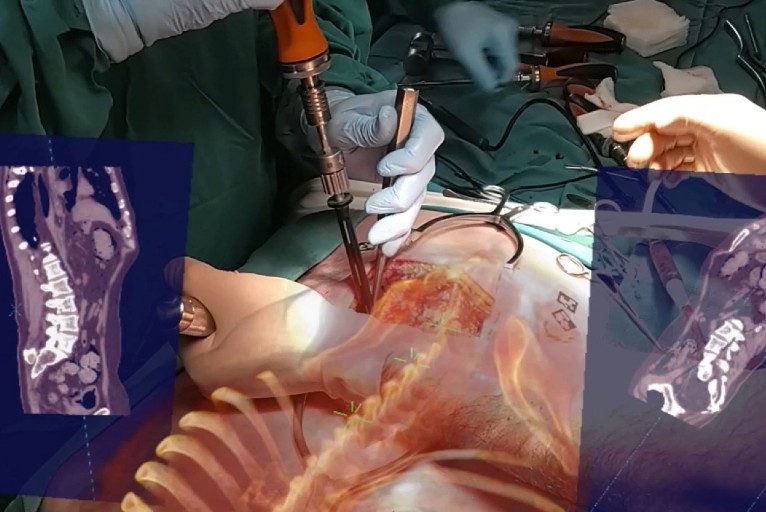
3D augmented reality surgical navigation system achieves FDA approval for precision spine surgery

VisAR, an augmented reality surgical navigation system from healthcare technology company Novarad, has received US Food and Drug Administration (FDA) 510(k) approval for precision guided intraoperative spine surgery.
VisAR transforms a patient’s imaging data into a 3D hologram which is visible through an optical visor and superimposed onto the patient with, according to Novarad, submillimetre accuracy. This allows the surgeon to focus directly on the surgical objective without looking away at a separate monitor. Most surgeries are performed without navigation due to the impediments of cost and setup time, say the company, who add that the VisAR system is a big step towards making precision surgical guidance widely available and economically feasible.
“This is transformational technology that provides the precision of a robot, the portability of a stethoscope and the versatility of human powered intelligence,” said Wendell Gibby, Novarad CEO and co-creator of VisAR. “Like a surgical GPS, VisAR provides a roadmap to guide the surgeon to the pathology of interest.”
VisAR is an end-to-end solution with pre-surgical planning, virtual annotations, segmentation and bi-directional image connectivity. It features integrated 2D and 3D immersive navigation views with continuous hologram-to-patient registration. VisAR technology utilises image visible CT fiducial markers for automatic registration. The operating room setup time is less than two minutes and surgical accuracy is sub 2mm for pedicle screw placement in both open and minimally invasive surgical procedures, say the company.
“My first impression of the technology, when you actually got to put it on and see real patient images come up was, ‘this is amazing. This is groundbreaking, revolutionary technology.’ It’s hard to explain,” said Michael Karsy, a neurosurgeon from the University of Utah (Salt Lake City, USA). “I’ve seen other technologies in the medical field, including virtual reality and other augmented reality systems. VisAR is ahead of the game and the people behind it have a real interest and passion to get this right.”
The post 3D augmented reality surgical navigation system achieves FDA approval for precision spine surgery appeared first on Spinal News International.
This content was originally published here.


